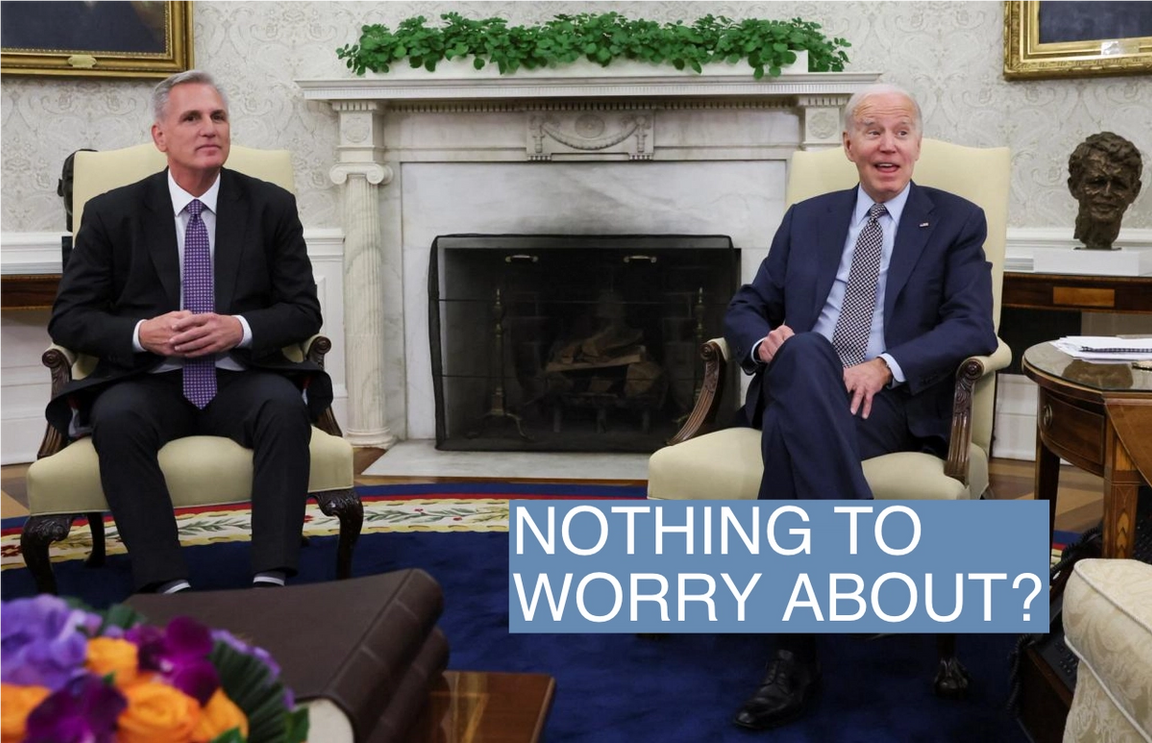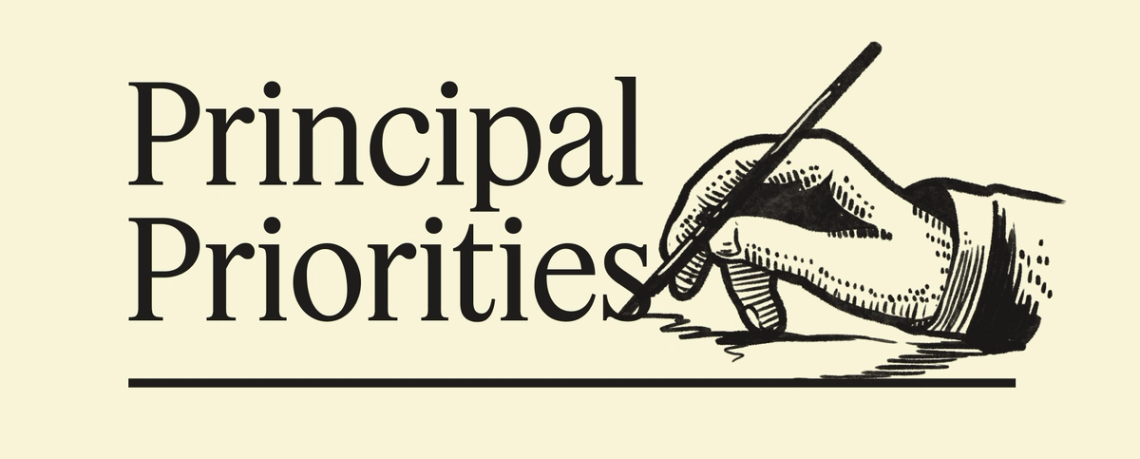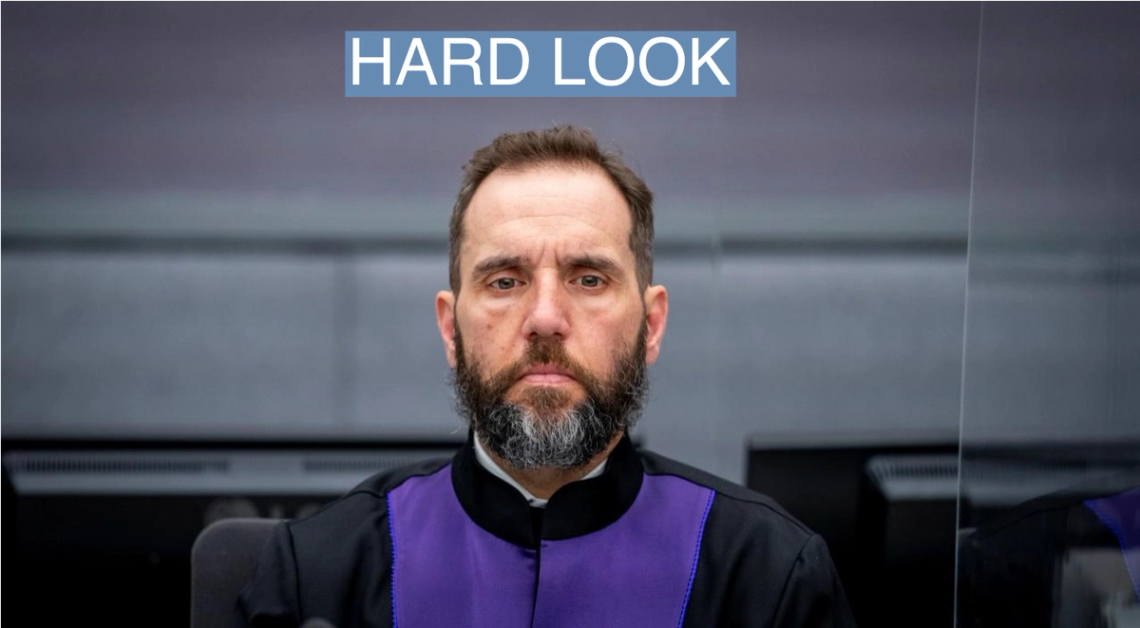 REUTERS/Leah Mills REUTERS/Leah MillsTHE NEWS There were few signs that Democrats and Republicans had come much closer to a debt ceiling deal by the time House Speaker Kevin McCarthy emerged from his 90-minute meeting at the White House on Monday. But the acrimony that had clouded talks over the past few days seemed to have lifted, with leaders from both sides offering cautiously upbeat assessments as aides continued negotiations late into the evening. “I think the tone tonight was better than any other time we’ve had discussions,” McCarthy told reporters after his meeting. President Biden issued his own statement saying, “We reiterated once again that default is off the table and the only way to move forward is in good faith toward a bipartisan agreement.” As it plugged away at talks with McCarthy, the White House also attempted to calm unease percolating among Congressional Democrats, who are concerned that any final deal capable of winning GOP support would have to impose severe budget cuts or new burdensome work requirements on safety net programs. According to two Democratic Senate aides, Biden staffers unexpectedly joined a weekly messaging call with Senate Democratic offices on Monday. During it, White House communications director Kate Berner told participants that the administration will not take votes from his own party’s lawmakers for granted as negotiations go on. “What we are very much trying to emphasize is a bipartisan deal can’t be made solely on their partisan terms,” Berner said, according to one of the aides on the call. A group of 11 Senate Democrats have continued urging Biden to keep his options open, and be prepared to sidestep Congress and declare the debt limit unconstitutional under the 14th amendment. One of them, Senate Budget Chair Sheldon Whitehouse, warned on Monday that a bipartisan deal may well collapse in the upper chamber. “If it’s something that can pass through the House, it’s highly unlikely we’d pass it in the Senate,” the Rhode Island senator said in a press call organized by the left-leaning Roosevelt Institute. Some Congressional Democrats are getting more specific about concessions they’re willing to make to Republicans. House Minority Leader Hakeem Jeffries acknowledged for the first time on Monday that members of his caucus were open to holding federal spending at current levels next year, an option the White House has proposed in talks. “We’re willing to discuss freezing spending,” Jeffries told reporters on Monday evening. “That’s an inherently reasonable position many in our party might even be uncomfortable with, but President Biden recognizes we’re in a divided government situation.” Republicans have already rejected that offer, however. On Monday, McCarthy once again said his members would only accept a deal that cut next year’s overall discretionary spending below its 2023 levels. Republicans have made that math more daunting however by pushing to boost the Pentagon and veterans budgets. That leaves non-defense programs that make up just 15% of the federal budget, but are cherished by Democrats — such as initiatives for childcare, housing, education, and scientific research — to absorb the cuts. “I’m just saying to you, look at what is being proposed in terms of cuts,” Rep. Rosa DeLauro, the top Democrat on the appropriations panel, told reporters. “Don’t talk about spending in the abstract. Headstart — 200,000 kids no slots, 100,000 kids without childcare.” JOSEPH’S VIEW If Biden does manage to strike a deal with McCarthy, it seems unlikely Congressional Democrats would really vote to reject it and throw the stability of the entire global economy into question, no matter how strongly they feel about the merits of the 14th Amendment or $1 trillion coin as workarounds. And it’s all but certain that few if any in either party are going to be completely satisfied with any agreement capable of passing both houses of Congress. “If they come out and AOC is mad and Chip Roy is mad, then you’re probably looking at a bill that has a chance of passing,” a House Democratic aide told Semafor. “If one of them is super happy, then you’re maybe looking at voting math problems.” ROOM FOR DISAGREEMENT Who knows, maybe Whitehouse isn’t bluffing. | 







